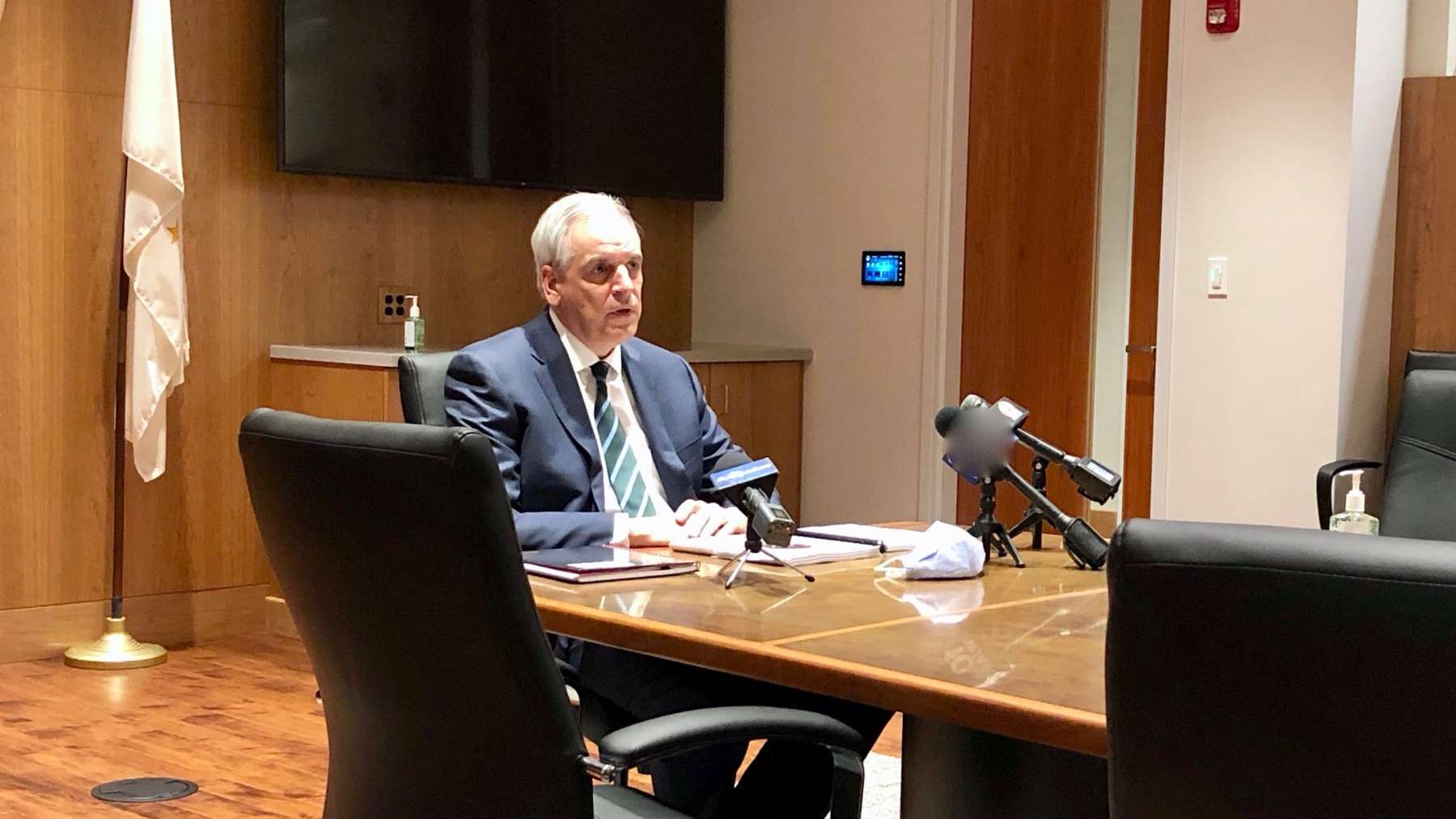Attorney General Neronha on his civil rights legislation and police use of force
“I honestly cannot think of one reason to oppose this legislation,” said Attorney General Peter Neronha. Rhode Island Attorney General Peter Neronha took questions from the press on his plans to address the inequities in policing here in Rhode Island as reflected in the ongoing public outcry over racism in the criminal justice system. The press conference took place ahead
June 15, 2020, 4:14 pm
By Steve Ahlquist
“I honestly cannot think of one reason to oppose this legislation,” said Attorney General Peter Neronha.
Rhode Island Attorney General Peter Neronha took questions from the press on his plans to address the inequities in policing here in Rhode Island as reflected in the ongoing public outcry over racism in the criminal justice system.
The press conference took place ahead of Neronha’s effort to pass critical key bills presently before the Rhode Island General Assembly as those bills are heard in the Senate Judiciary Committee on Monday evening. Neronha will be testifying in person on the importance of these bills:
Through this proposed civil rights legislation, Neronha hopes to accomplish two things.
“One is to expand the scope of exiting civil rights law in Rhode Island in terms of who it covers,” said Neronha. “As of today it covers race and religion, but it doesn’t cover things like gender, gender identity or expression, disability and a few other things. For that law… to protect everybody that needs protection, it needs to be expanded, as we see from the Supreme Court Decision today.”
Here Neronha is referencing the United States Supreme Court‘s decision to recognize the rights of LGBTQ citizens to not lose their jobs due to their orientation or gender expression.
This expansion is necessary to allow people to bring private rights of action – civil lawsuits to protect their rights, and for the Attorney General to bring civil suits as well. Neither of these rights of action are expansive enough, and other pieces of legislation being taken up by the Senate today seeks to codify the Attorney General’s authority for injunctive relief when an entity engages in repeated federal or state constitutional or civil rights violations, and seek financial damages, as well as expand civil causes of action.
Presently the law “does not allow us to take action in instances of threatening or harassing conduct, it only allows us to take action where there has been property damage, trespassing or use of force,” said Neronha. “Yet we know that in many instances where civil rights are being violated, where people are being mistreated for what they look like or where they come from, or for their gender or how they identify their gender – happens well outside physical damage, violence or property damage.”
Neronha spoke about giving the Attorney General’s office “pattern and practice” authority. This would allow the Attorney General to investigate police departments and other governmental agencies that appear to be violating civil rights in a systemic way. Uprise RI asked if this would apply to racial disparities in police stops, as documented semi-annually by the Rhode Island ACLU.
“Yes,” said Neronha. “These pattern and practice investigations really consist of this: You do a deep dive into the department. You hear from community voices. You bring in experts. You hear from the police department. They don’t have to be adversarial. Sometimes they can be uncomfortable… and they can lead to some real change.”
“I honestly cannot think of one reason to oppose this legislation,” said Neronha.
Neronha also said that there will be other announcements from his office soon, including a revised “use of force protocol” that will require all Rhode Island law enforcement to immediately report the use of deadly force, use of force resulting in serious bodily injury, and excessive use of force to the Attorney General’s office. The protocol has not been updated since 2007.
Expect more actions from the Attorney General’s office over the next days and weeks as well.
Also today, the Senate Judiciary Committee will be hearing testimony on Senator Harold Metts‘ bill to begin a legislative task force to review and provide recommendations pertaining to the Law Enforcement Officer’s Bill of Rights (LEOBoR).







